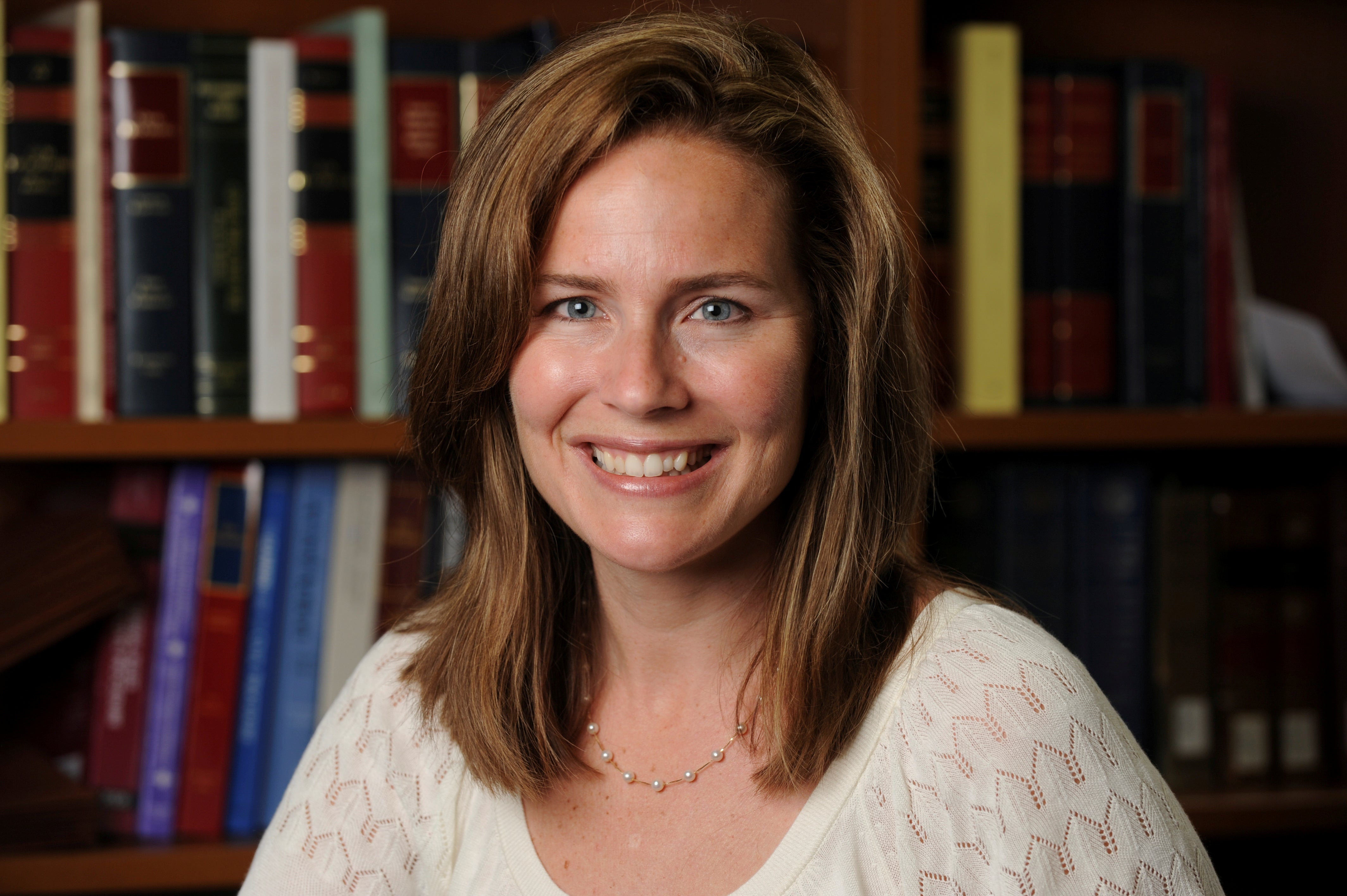Amy Coney Barrett: Meet the judge at the top of Trump’s list to replace Ruth Bader Ginsburg
A devout Catholic who is fervently antiabortion, Barrett appeals to Trump's conservative base.

Your support helps us to tell the story
From reproductive rights to climate change to Big Tech, The Independent is on the ground when the story is developing. Whether it's investigating the financials of Elon Musk's pro-Trump PAC or producing our latest documentary, 'The A Word', which shines a light on the American women fighting for reproductive rights, we know how important it is to parse out the facts from the messaging.
At such a critical moment in US history, we need reporters on the ground. Your donation allows us to keep sending journalists to speak to both sides of the story.
The Independent is trusted by Americans across the entire political spectrum. And unlike many other quality news outlets, we choose not to lock Americans out of our reporting and analysis with paywalls. We believe quality journalism should be available to everyone, paid for by those who can afford it.
Your support makes all the difference.At the top of President Donald Trump's list to replace Ruth Bader Ginsburg on the Supreme Court is U.S. Circuit Court Judge Amy Coney Barrett, a jurist in the mold of the late Antonin Scalia who fulfills nearly all criteria on conservatives' wish list.
At 48 years old, Barrett could hold the lifetime seat for several decades. Trump's first two nominees to the nation's highest court, Neil Gorsuch and Brett Kavanaugh, are in their 50s. Trump's justices will potentially represent one-third of the Supreme Court for generations.
Why is she at the top of Trump's list?
A devout Catholic who is fervently antiabortion, Barrett appeals to Trump's conservative base. But Republicans also hope that for moderates like Sen. Susan Collins, R-Maine, her gender makes her a more palatable replacement for Ginsburg, a feminist icon who spent her life fighting for gender equality.
Trump considered Barrett in 2018 to replace retired justice Anthony Kennedy, but reportedly said he was saving her for Ginsburg's slot.
What is her judicial background?
Trump first nominated Barrett to the U.S. Court of Appeals for the Seventh Circuit in 2017. Previously, she'd taught law at the University of Notre Dame for 15 years, and so had no previous judicial record to scrutinize. Democrats balked at her nomination, questioning whether the academic could be an impartial arbiter due to her deep religious convictions. Republicans accused Democrats of applying a religious test in their questioning.
However, Barrett wasn't a total novice to the judicial system. Out of law school, she clerked for Scalia, who she considers a mentor and with whom she shares a belief in originalism, which is the idea that judges should attempt to interpret the words of the Constitution as the authors intended when they were written.
What would be the impact of Barrett's religion on her rulings on issues such as Roe v. Wade?
During her confirmation hearing to the appeals court, Barrett said in that role she would "follow all Supreme Court precedent without fail" and would regard decisions such as Roe v. Wade as binding precedent.
"I would never impose my own personal convictions upon the law," she added.
But Democrats pointed to comments she'd made at Notre Dame years before about being a "different kind of lawyer." She said that we should always remember that a "legal career is but a means to an end . . . and that end is building the Kingdom of God."
She has previously written that judges shouldn't be held to upholding Supreme Court precedents, like Roe v. Wade. In a 2018 Washington Post article that examined how Barrett's beliefs would affect her decision-making, experts who had studied her writings concluded that she would join other conservatives on the court in supporting overturning Roe v. Wade.
WASHINGTON POST
Join our commenting forum
Join thought-provoking conversations, follow other Independent readers and see their replies
Comments